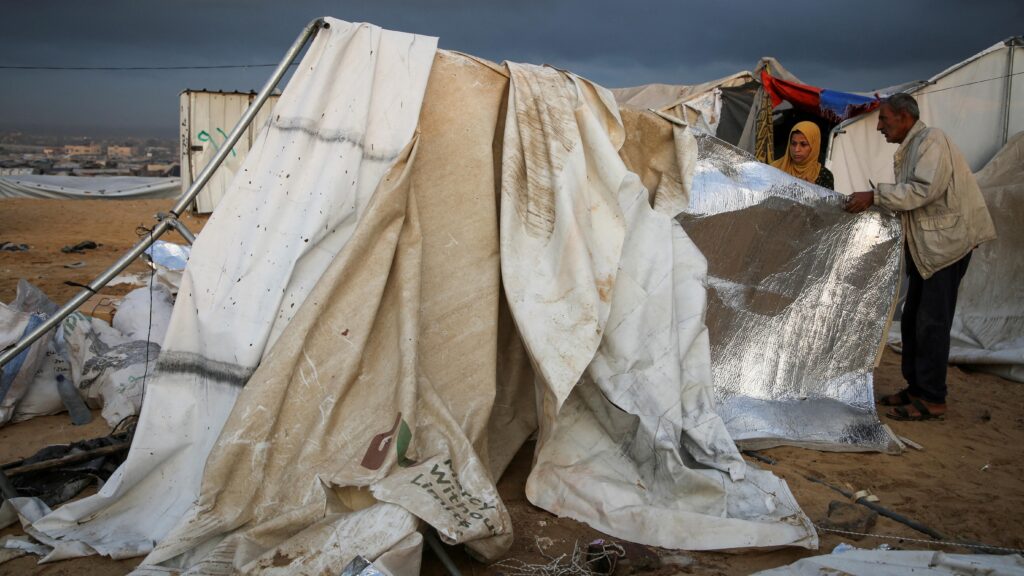The U.S. government has formally notified Israel that it has 30 days to improve humanitarian aid access in Gaza, or it risks facing cuts to military assistance.
This letter, sent on Sunday, represents the strongest warning issued by the U.S. to Israel amid ongoing military actions in northern Gaza that have reportedly resulted in significant civilian casualties.
The letter highlights the U.S. government‘s serious concerns regarding the deteriorating humanitarian conditions in Gaza, noting that Israel blocked or impeded nearly 90% of humanitarian movements between northern and southern regions in September.
An Israeli official acknowledged receipt of the letter, stating that the government is taking it seriously and intends to discuss the concerns raised with U.S. officials.
The Israeli military maintains that its operations are focused on targeting Hamas militants, and it claims that it has not halted the entry of humanitarian aid.
On Monday, the Israeli military authority managing crossings into Gaza, Cogat, announced that 30 trucks from the World Food Programme entered northern Gaza, breaking a two-week period without food aid deliveries, during which essential supplies dwindled for approximately 400,000 Palestinians in the area.
A UN representative declared that Gaza is currently experiencing a “constant peak emergency.”
Antoine Renard, the head of the World Food Programme in the occupied Palestinian territories, emphasized that residents in northern Gaza are reliant on aid, with little access to fresh food outside of what is provided by UN agencies.
As the largest arms supplier to Israel, the U.S. has provided significant military resources, including aircraft and guided weapons, for its operations against Hamas over the past year.
The contents of the U.S. letter, confirmed by the State Department, were initially reported by Axios and are signed by Secretary of State Antony Blinken and Defense Secretary Lloyd Austin.
In the letter, the U.S. expressed deep concern over the worsening humanitarian situation in Gaza and urged Israel to take immediate action to improve conditions.
It stated that Israeli evacuation orders have forced 1.7 million people into overcrowded areas, increasing the risk of disease and limiting humanitarian organizations’ ability to meet basic survival needs.
The U.S. demands that Israel implement specific measures to enhance aid delivery, including allowing at least 350 aid trucks per day across all major crossings and ending the isolation of northern Gaza.
Failure to act could have serious implications for U.S. policy regarding military assistance, as U.S. law restricts support to nations that obstruct humanitarian aid.
U.S. State Department spokesperson Matthew Miller noted that the letter was a private diplomatic communication intended to convey necessary changes to aid access.
He refrained from discussing potential consequences for Israel if it fails to comply but reiterated the importance of adhering to U.S. law regarding humanitarian assistance.
Israel has consistently maintained that there are no restrictions on the volume of aid entering Gaza and has attributed delays to the ineffectiveness of UN agencies, while also accusing Hamas of diverting aid allegations that Hamas denies.
In a previous episode earlier this year, President Joe Biden suspended a shipment of munitions to Israel as he sought to moderate its military response.
This decision faced criticism from Republicans and Israeli Prime Minister Benjamin Netanyahu, who perceived it as a potential “arms embargo.”
The suspension was later partially lifted.
7-Year-Old Boy From Nyandarua, Who Went Missing, Discovered Dead In Well
